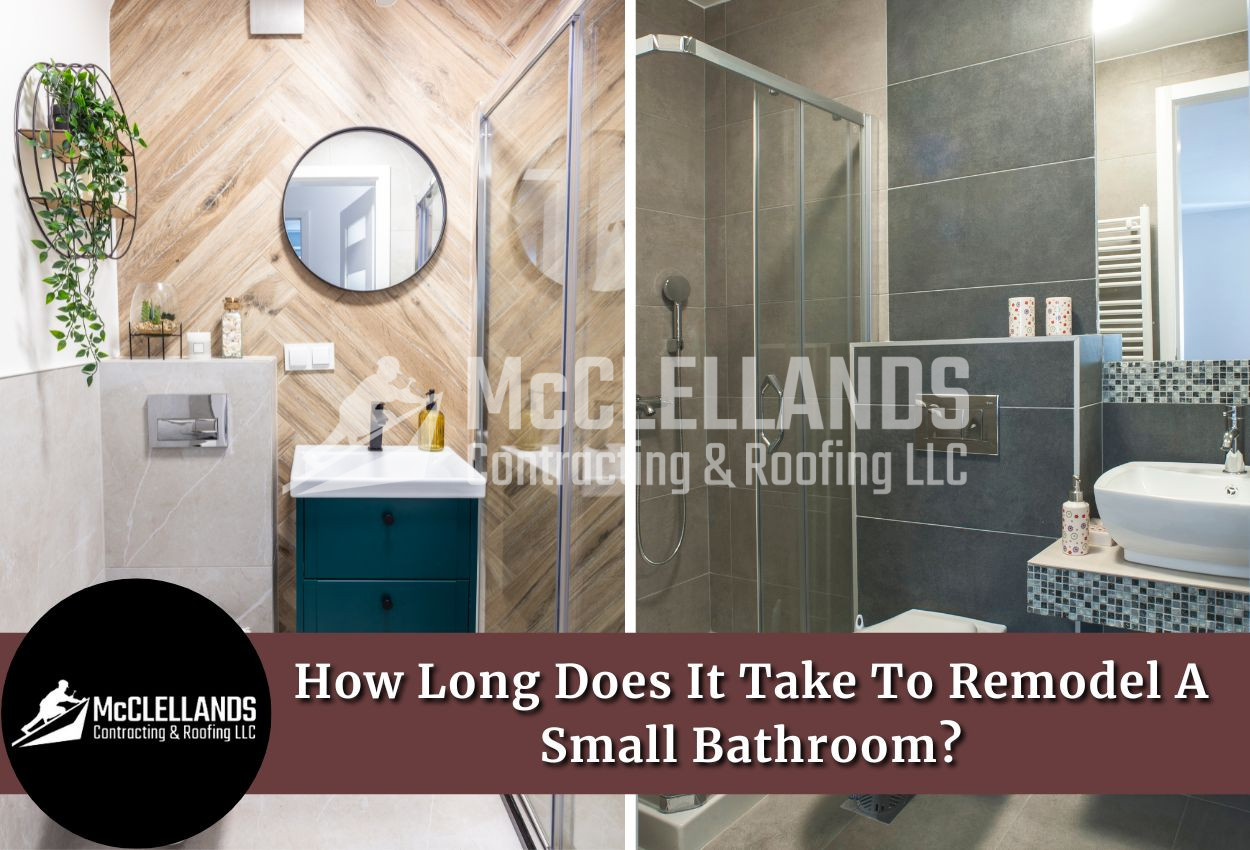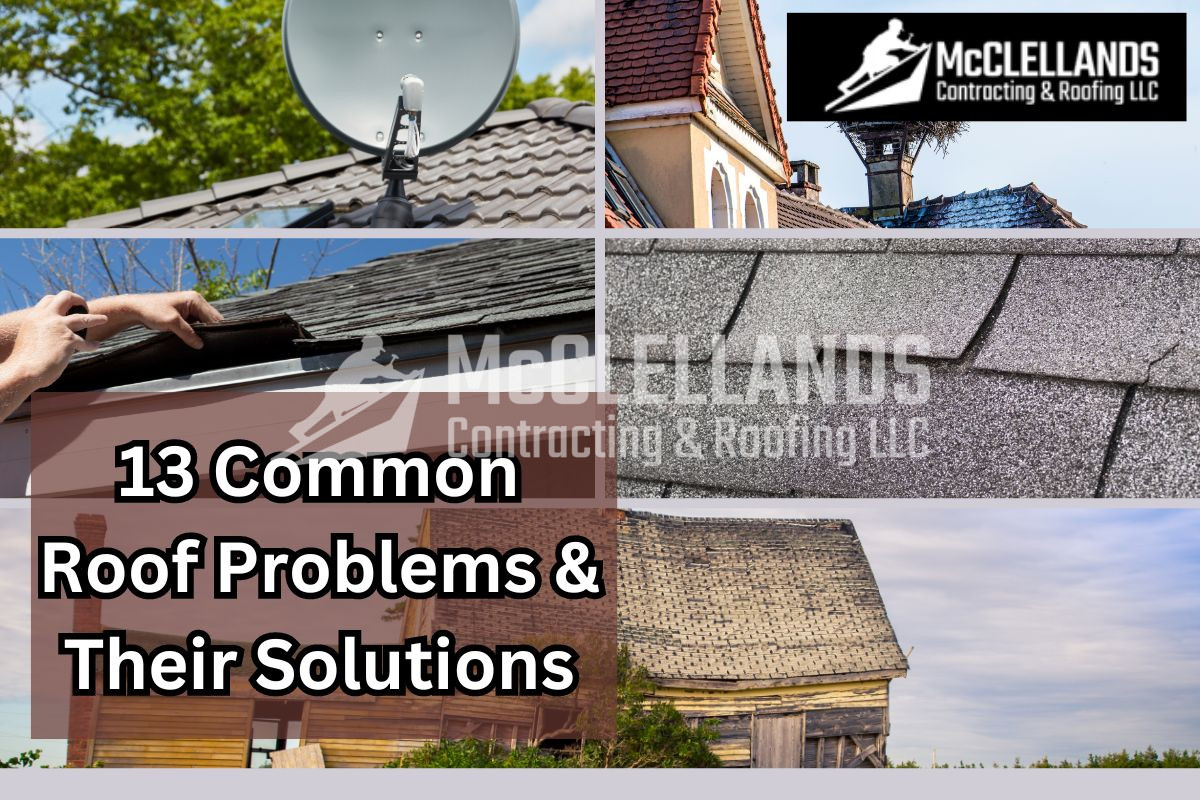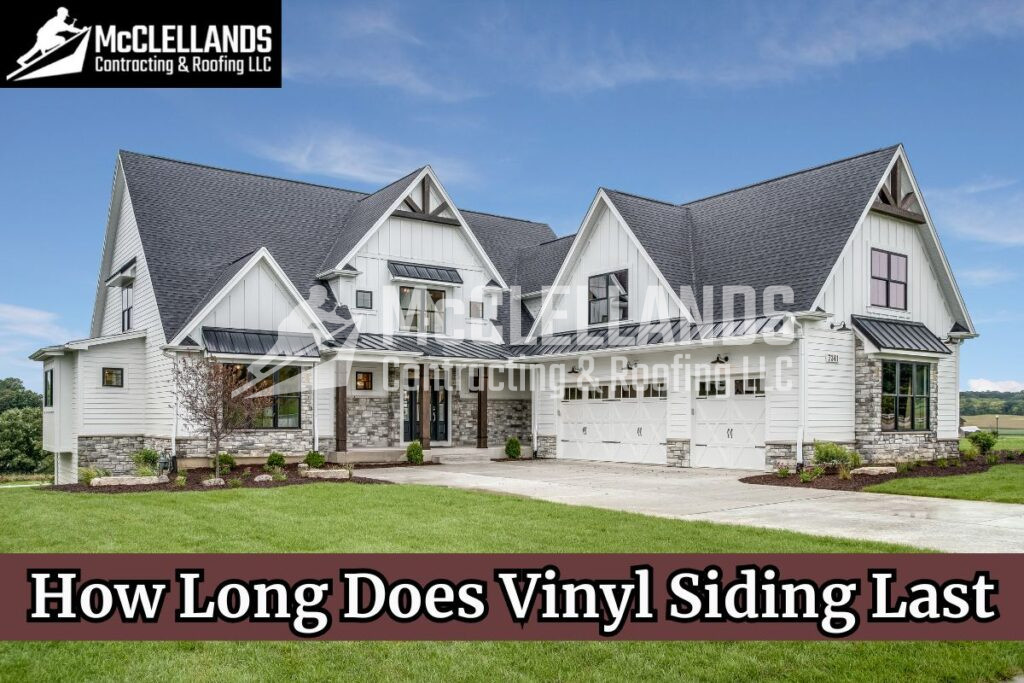
Everyone knows that siding protects the exterior of a building and affects your home’s overall appearance. Many are also aware that vinyl siding offers the most economical choice out of all the siding options since its introduction in the 1950s. But is it’s lifespan worthy of a cheaper price? That’s what many homeowners worry about when considering the best siding option for their home.
At McClellands Contracting and Roofing, we aim to guide homeowners through any questions they have about their homes. In this blog post, we will not only cover the lifespan of vinyl siding, but also discuss alternative options and much more.
What Is The Lifespan Of Vinyl Siding?
The expected lifespan of residential vinyl siding is 30 to 40 years. However, if it’s maintained properly and under normal climate conditions, it can last up to 50 years.
Individual factors affect the exact lifespan of vinyl siding depending on the home, so let’s take a closer look at some of these aspects:
#1 Installation Quality
The main factor directly affecting the longevity of vinyl siding on your home is how well it was installed. Proper installation is mandatory for an extended lifespan since it makes sure that the siding is installed without any gaps or loose pieces. It also directly affects how well the siding can handle harsh weather and resist damage.
#2 Local Weather Patterns
If your local weather tends to experience periods of intense heat or cold, you can assume that your vinyl siding will be impacted. Intense, frequent storms can lead to holes, buckling, and cracks in the siding. Similarly, other extreme weather conditions, like snow, rain, and even sun exposure, can lead to the vinyl siding aging faster.
#3 Maintainance
With regular maintenance, you can make any siding last an extended period of time. Clean your siding at least twice a year, and check for any signs of damage during this time in order to catch minor problems and extend its lifespan.
How To Decide If Your Vinyl Siding Needs A Repair Or Replacement
While minor issues are always easy to fix, ignoring significant signs of damage is not recommended. Here is a table of when to replace or repair your home’s siding to help you choose the right solution.
| Problem | Repair | Replacement |
| Minor Scratches | Yes | No |
| Cracks | Yes | Yes (depending on severity) |
| Fading | Yes | No |
| Significant Weather Damage | No | Yes |
| Structural Issues | No | Yes |
| Ageing Problems | No | Yes |
| Mold or Mildew | Yes | Yes (depending on severity) |
| Small Dents | Yes | No |
| Peeling Paint | Yes | No |
Other Siding Materials You Can Consider For Your Home
Vinyl siding has a great lifespan and is an affordable choice, but there are more options available that you should consider. Some of them are even more durable and last longer than vinyl.
#1 Steel Siding
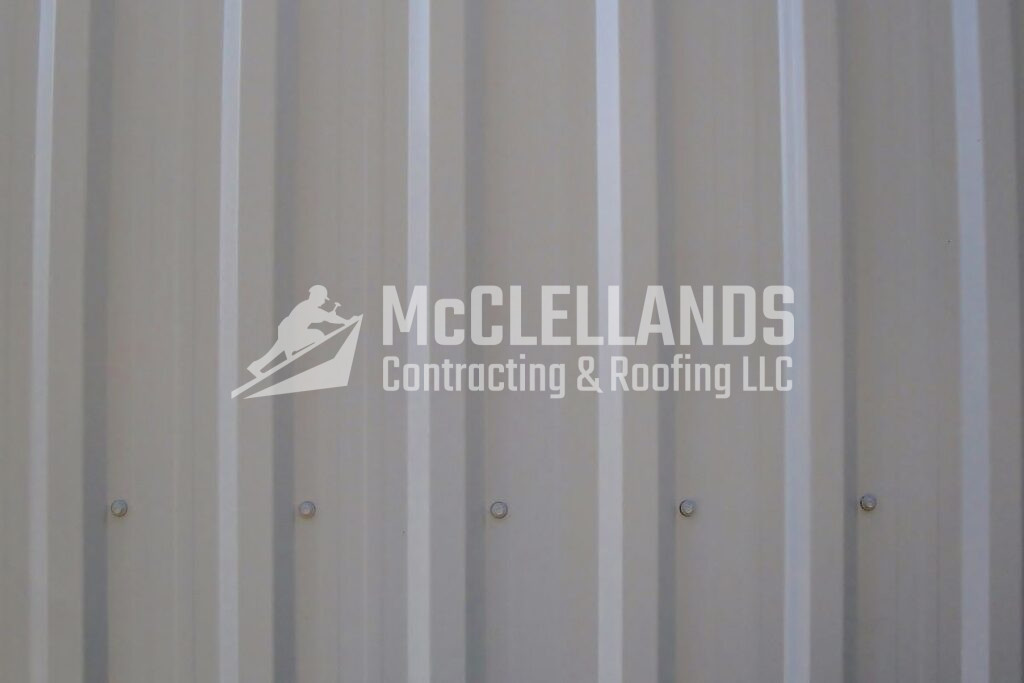
Steel siding is a durable choice for your building because it is a strong and lightweight metal. It offers superior resistance against water and protects the walls of your home from external elements like dust, mold, and debris.
| Pros | Cons |
| Steel siding can last for up to 40 years or more | Steel siding can rust, so you need to follow proper maintenance to maintain the appearance of your home. |
| Since it’s metal, it provides enhanced durability to protect your building for many years to come | Needs good insulation in a cold climate to maintain a comfortable temperature in your home. |
| Steel is a fire resistant material, and this makes your home safe from emergency fire hazards | Costs more than vinyl, but the long-term benefits justify the difference in cost |
#2 Fiber-Cement Siding
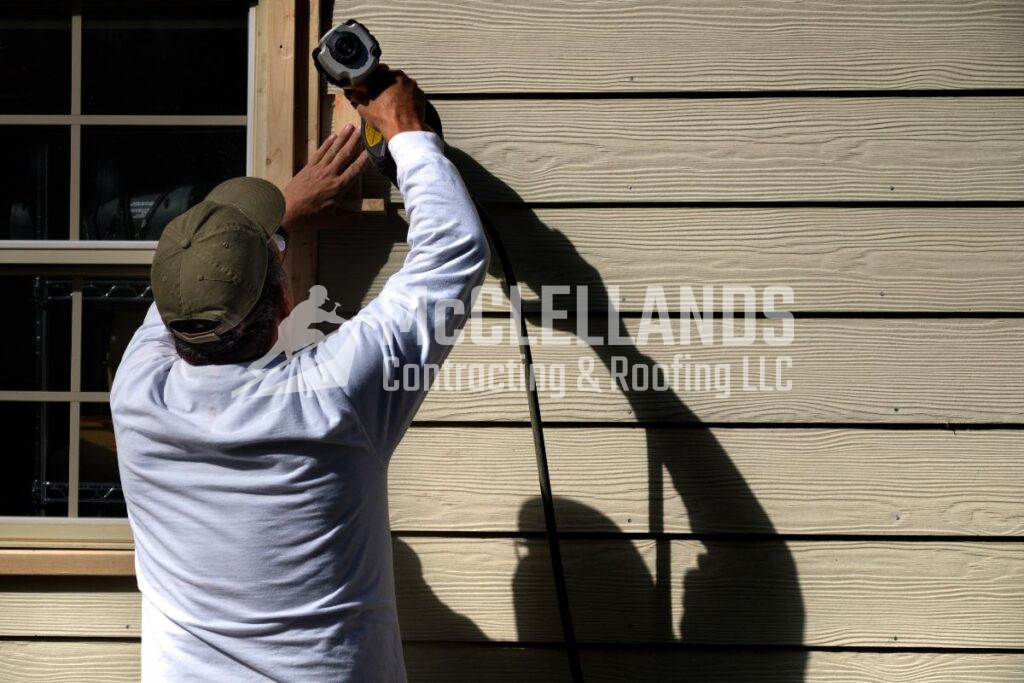
Fiber-cement siding is a durable building material composed of a mixture of sand, cement, and cellulose wood fibers. The addition of wood fibers enhances the material’s strength and flexibility, making it a popular choice for exterior siding in residential and commercial construction.
| Pros | Cons |
| Provides the look of wood with enhanced durability | It’s very heavy, which can make installation more labor intensive and potentially cost more |
| Fiber-cement siding can protect your building for a long time, often over 50 years or more | You need to paint them occasionally to maintain their appearance, which means extra work and cost over time |
| Even while looking like wood, it doesn’t attract pests such as termites |
#3 Aluminum Siding
Aluminum siding is manufactured from thin sheets of aluminum that are pressed and formed into siding boards, offering another durable alternative to vinyl siding.
| Pros | Cons |
| Very light, so it’s easy for workers to install on the walls of your house | Offers a very industrial appearance which many homeowners usually don’t like |
| They don’t rust like other metals, so rain and snow won’t damage the panels as easily | Can be dented easily if something hits them, like a ball or hail |
| They can last between 20-40 years | If painted, the color can fade over time from being in the sun, making it look old |
#4 Brick Veneer Siding
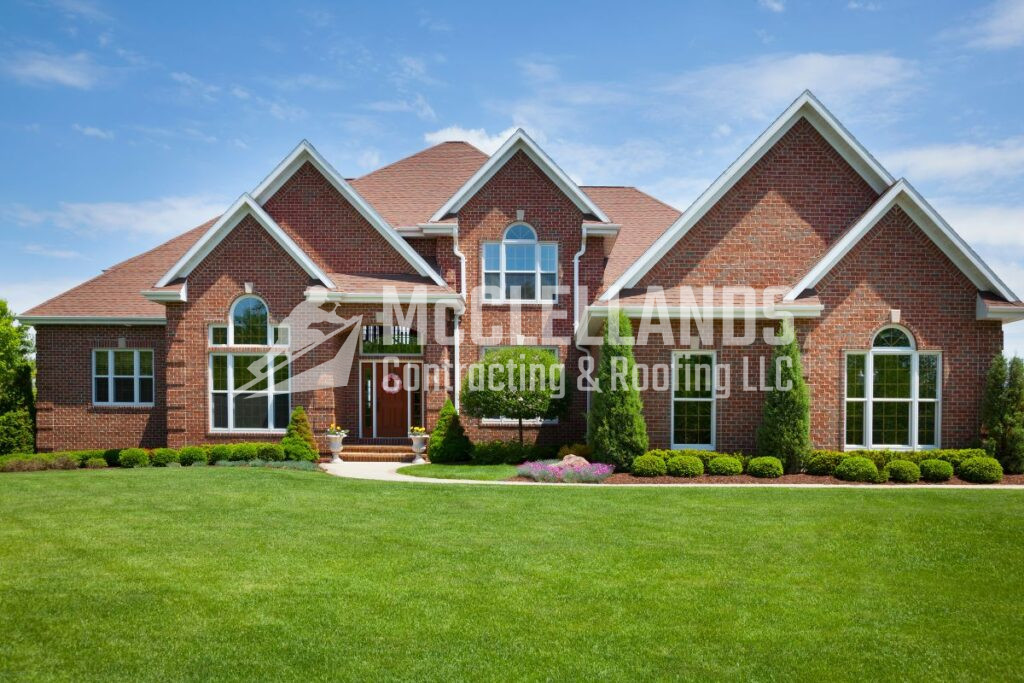
Brick veneer siding is constructed from thin slices of brick that are applied to the exterior of a building. This type of siding provides the classic look of traditional brickwork without the weight and cost associated with full brick construction.
| Pros | Cons |
| Appears modern and fancy and can make your home look really beautiful and pleasing to the eye | Comparatively much more expensive than other siding |
| Can last for 50-100 years | It’s very heavy, so some houses might not be strong enough to hold it |
| Helps maintain insulation and a comfortable temperature in your home | Replacing it can be challenging and expensive to remove |
Our Recommendation
While choosing the right siding material for your home, don’t forget to consider hiring a professional contractor for the installation. The experts have the right knowledge and will recommend the best material to suit the needs of your building.
Vinyl siding is a great choice if you’re working with a small budget as it provides a standard amount of durability and an average lifespan. However, if you are looking for a long-term solution, you may want to choose another option. If you are a homeowner in Pennsylvania who need assistance, we are here for you.
Call McClellands Contracting And Roofing For Siding Installation In Pittsburgh, PA
If you are looking for reliable vinyl siding installation for your home in Pittsburgh, or the surrounding areas of PA, then we are here to assist you. At McClellands Contracting and Roofing, we aim to deliver top-quality exterior and home remodeling services. Our quality workmanship makes us one of the best-rated home remodeling contractors in Pennsylvania. To learn more about our services, feel free to call us at (412) 353-5660.


